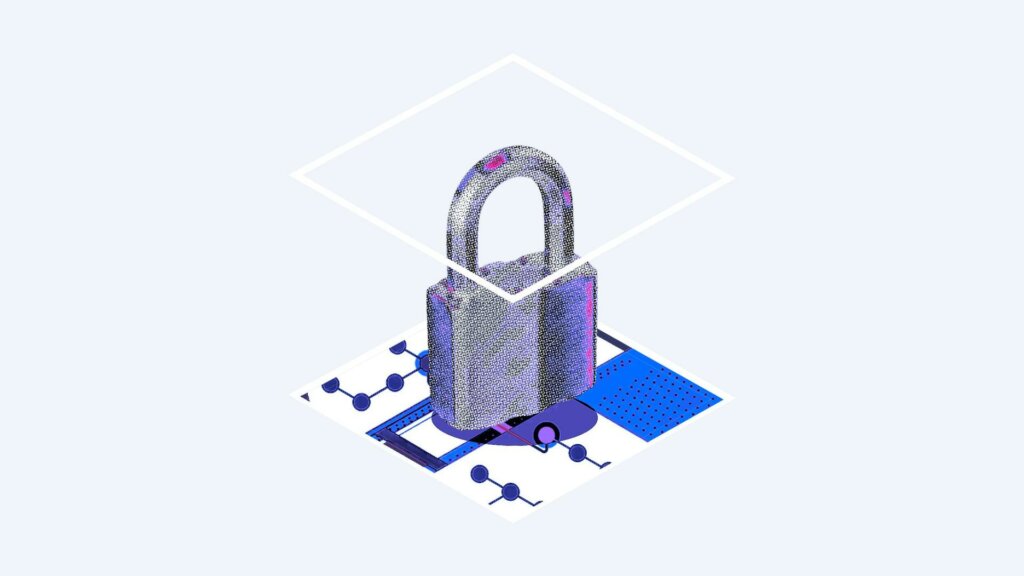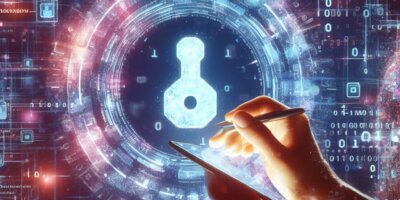
IBM is a leader when it comes to developing quantum computing. (Image generated by AI).
Quantum computing challenges in APAC
- Quantum computing is still being developed by several countries around the world.
- The biggest concern for quantum computing is its potential to break some of the existing encryption methods.
- However, quantum computing can enable new encryption methods that are resistant to quantum attacks
Quantum computing is a technology that uses the principles of quantum mechanics, such as superposition and entanglement to perform computations much faster and more efficiently than classical computers. Quantum computing has many potential applications in various fields, such as cryptography, simulation, optimization, machine learning, and more.
Asia Pacific is emerging as a key player in quantum computing due to its strong commitment to technological innovation. Countries like China, Japan, and South Korea have invested heavily in research and development, attracting top-tier scientists and engineers and building world-class research institutes in the field.
Some of the recent achievements and initiatives in quantum computing in the Asia Pacific are:
- Japan launched its most powerful quantum computer, called QX, in August 2023, which can perform 100 trillion calculations per second. The QX is based on superconducting qubits and is designed to solve complex optimization problems in various domains, such as finance, logistics, and manufacturing.
- China developed its own quantum computers, called Jiuzhang and Zuchongzhi, which demonstrated quantum supremacy, meaning they can perform tasks that are impossible or impractical for classical computers. Jiuzhang uses photons as qubits and can sample from a distribution of 76 photons in 200 seconds, which would take a classical computer 2.5 billion years to do. Zuchongzhi uses superconducting qubits and can sample from a distribution of 66 qubits in 1.2 hours, which would take a classical computer 8 billion years to do.
- South Korea announced its plan to invest 1.5 trillion won (US$1.3 billion) in quantum computing over the next ten years, aiming to develop a 128-qubit quantum computer by 2028. The plan also includes building a quantum research center, fostering quantum talent, and supporting quantum startups.
- In Southeast Asia, Singapore leads quantum computing research and development. The country has launched several initiatives and platforms to support the growth of the quantum ecosystem, such as the National Quantum Computing Hub (NQCH).

The biggest concern for quantum computing is its potential to break some of the existing encryption methods. (Image generated by AI).
Quantum computing and cybersecurity
While many use cases are being developed for quantum computing, cybersecurity is one area in which the technology can be used for both the right and wrong reasons. The biggest concern for quantum computing is its potential to break some of the existing encryption methods that rely on the difficulty of factoring large numbers, such as RSA and ECC. This would compromise the security of many systems and applications that use these methods, such as online banking, e-commerce, and digital signatures.
Cybercriminals are aware of this and have already started planning ways how to infiltrate organizations with these new tools. Some cybercriminals are even considering hacking now to decrypt data in the future, a possibility that is a major concern for organizations dealing with critical and sensitive data.
While the risks are present, there are also ways to deal with them. Quantum computing can enable new encryption methods that are resistant to quantum attacks, such as lattice-based cryptography, code-based cryptography, and multivariate cryptography. These methods are based on mathematical problems that are hard to solve even for quantum computers.
Quantum computing can also support quantum-secure communications, such as quantum key distribution (QKD). QKD is a technique that uses quantum properties, such as entanglement and no-cloning, to generate and share secret keys between two parties. QKD can guarantee the security of the keys against any eavesdropping, as any attempt to measure the quantum state would disturb it and reveal the intrusion.
Quantum computing can also enhance cybersecurity by improving the performance and capabilities of some tasks, such as malware detection, intrusion detection, anomaly detection, and network optimization. Quantum computing can use quantum algorithms, such as Grover’s algorithm and quantum machine learning, to speed up the search and analysis of large and complex data sets.

Catherine Lian, GM and technology leader, IBM ASEAN.
The challenges in APAC
More than 40 countries have some form of national initiative or strategy to support quantum technology development. According to the World Economic Forum’s Quantum Economy Blueprint report, many of these governments explicitly acknowledge a need to guide the ethical, social, legal and economic implications of quantum technologies, including their impact on cybersecurity and the global financial system.
In Southeast Asia, Catherine Lian, GM and technology leader, IBM ASEAN commented that there is significant concern that data that cybercriminals are stealing data now for later decryption by quantum computers.
“Data securely protected today could be lost to a bad actor that gains access to a future cryptographically relevant quantum computer. These threats will apply to all data, systems and technologies that are not made quantum-safe. And securing today’s data for tomorrow’s quantum risk should start today,” said Lian.
Lian also mentioned that being at the forefront of quantum-safety, IBM has been working for years with industry partners on quantum-safe cryptography to set new security standards and protocols that quantum computers cannot break.
In the US, the National Institute of Standards and Technology (NIST) is expected to publish its first official standards. But even before then, organizations can take the first steps toward becoming quantum-safe by beginning to identify and understand their current cryptography usage and developing a plan to transition current cryptography to new post-quantum cryptography standards, prioritizing remediation based on risks.
In Singapore, IBM and National Computer Systems (NCS) signed a memorandum of understanding (MOU), which outlines plans to co-develop and provide end-to-end quantum-safe and privacy-enhancing services for public agencies and enterprises in Singapore. The MOU comes at a crucial time as data protected using public-key encryption today could be vulnerable and decrypted by a cryptographically relevant quantum computer in the future.

Quantum computing can enable new encryption methods that are resistant to quantum attacks. (Image generated by AI).
IBM and quantum computing
There is no denying that IBM is a leader when it comes to developing quantum computing. Its products and services are being used by researchers, developers, and businesses to access and develop quantum technology.
That includes IBM Quantum Systems in which IBM provides access to its quantum hardware, which consists of superconducting qubits, through the cloud. IBM has a fleet of over 100 quantum systems, with the most powerful one having 127 qubits as of December 20231. IBM also plans to deliver a 4,000-qubit system by 20252.
There is also Qiskit, an open-source framework for quantum programming, which allows users to create and run quantum circuits on IBM Quantum systems or simulators. Qiskit also includes modules for quantum algorithms, quantum machine learning, quantum chemistry, and quantum optimization.
Meanwhile, the IBM Quantum Network is a global community of partners, clients, and collaborators who work together to advance quantum computing and explore its applications. The network includes over 250 members from various sectors, such as academia, industry, finance, and government.
For cybersecurity, IBM Quantum-Safe is a suite of solutions and services that help enterprises prepare for the quantum era by securing their data and communications from potential quantum attacks. IBM Quantum-Safe uses IBM’s expertise in cryptography, quantum-resistant algorithms, and post-quantum encryption.

IBM Quantum-Safe. (Image by IBM).
IBM Quantum-Safe
According to Ray Harishankar, IBM Fellow for IBM Quantum-Safe, some bad actors may not choose to use the power of quantum computing in positive ways. Hence, IBM wants to make sure the world is quantum-safe. It’s also true of course that in a burning world, being the seller of the best fire engines in town will be a lucrative business.
“Quantum algorithms are now proven, after being studied for years. Prime factorization, which was once thought unsolvable, or to take millions of years in computing time, can now be done in hours. This could pose a risk to today’s encryption,” said Harishankar.
Current security protocols heavily rely on prime factorization. But Harishankar believes quantum computers have broken this protocol. Today, one can forecast that in the foreseeable future, there will be a powerful enough quantum computer that can be applied to break encryption using Shor’s algorithm.
“That is why we say that today’s classic protocols will be obsolete tomorrow. And cryptography and encryption is the ultimate difference for any enterprise out there that needs to protect their data from bad actors,” added Harishankar.
Currently, IBM offers tools to protect infrastructure from such cybersecurity issues. This includes the IBM Quantum-Safe Explorer, which can be used on an ongoing basis. At present, it takes enterprises anywhere from 7 to 10 years to completely transform the cryptography that they currently use. Tools like this will give them at least some protection.
“We believe that the time to start is now. Enterprises need to begin to understand the risks of quantum computing, particularly with respect to quantum-safety, and begin creating an inventory of cryptography usage across the enterprise so they have a comprehensive view. If planned and executed properly, this can be done in a structured and incremental manner.
We can prioritize what needs to be done, and incrementally go and work with what they believe is the most valuable or vulnerable or critical systems that they need to protect and start from there. And finally, moving to transformation with what we call crypto-agility so that you can position yourself to do well in the future,” he concluded.

US President Joe Biden looks at a quantum computer with IBM CEO Arvind Krishna as he tours the IBM facility in Poughkeepsie, New York on October 6, 2022. (Photo by MANDEL NGAN/AFP).
Skills shortage is still a problem
Despite all the innovations in quantum computing, there is still one big problem. The industry still has a huge skills shortage. Given that quantum computing is still in its early stages and a very niche industry, developing the talent to work with the technology will take time.
Countries like Singapore are already developing skillsets in the field through the National Quantum Computing Hub program. IBM is also boosting the education of quantum computing. IBM claims to have helped educate more than 8 million “quantum learners” across the globe.
And to help close the quantum skills gap, Keio University, the University of Tokyo, Yonsei University, Seoul National University, and the University of Chicago announced last December a 10-year collaboration to prepare at least 40,000 students in Japan, South Korea, and the United States for the future quantum workforce.
READ MORE
- Data Strategies That Dictate Legacy Overhaul Methods for Established Banks
- Securing Data: A Guide to Navigating Australian Privacy Regulations
- Ethical Threads: Transforming Fashion with Trust and Transparency
- Top 5 Drivers Shaping IT Budgets This Financial Year
- Beyond Connectivity: How Wireless Site Surveys Enhance Tomorrow’s Business Network






